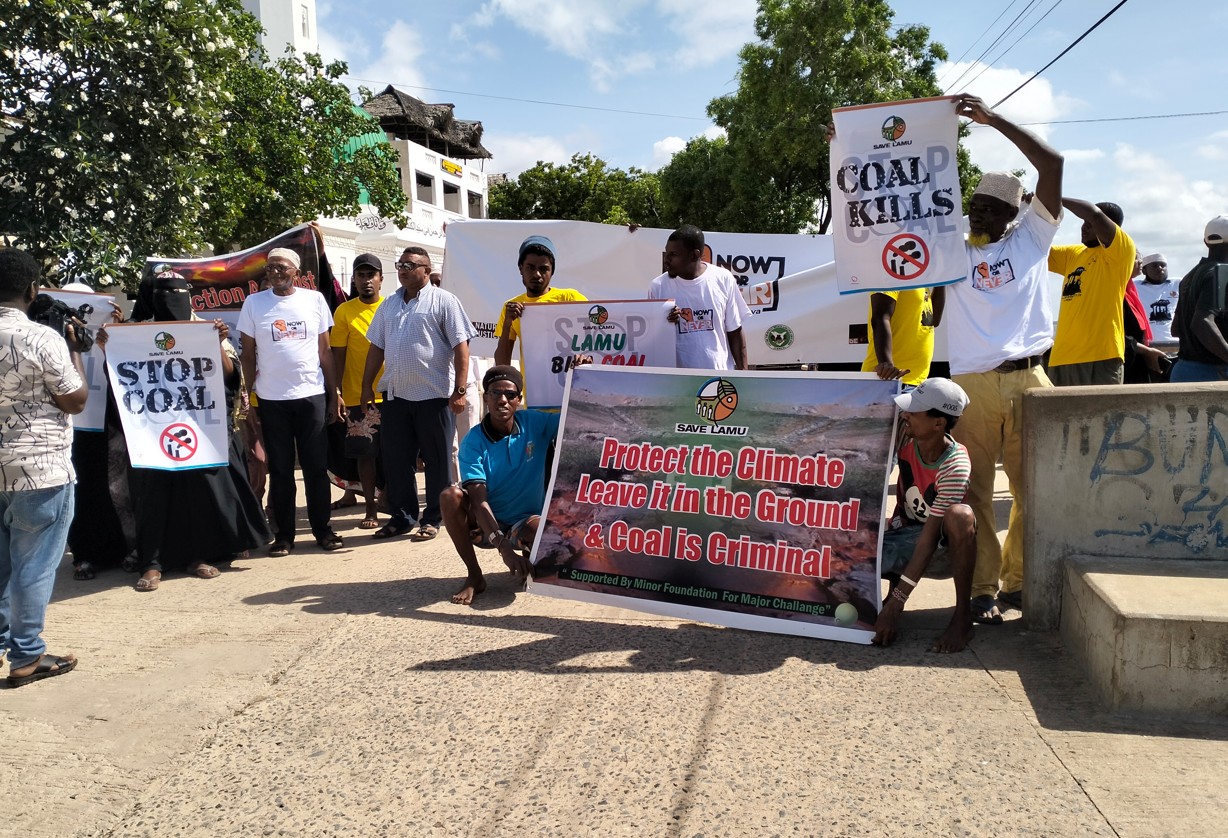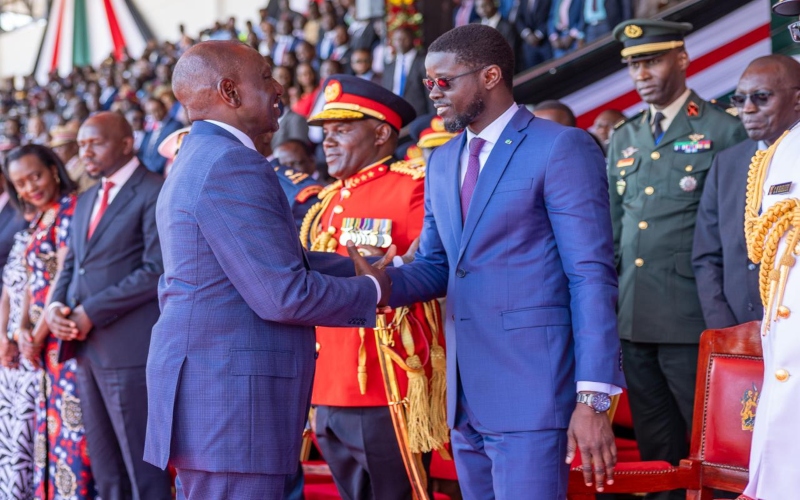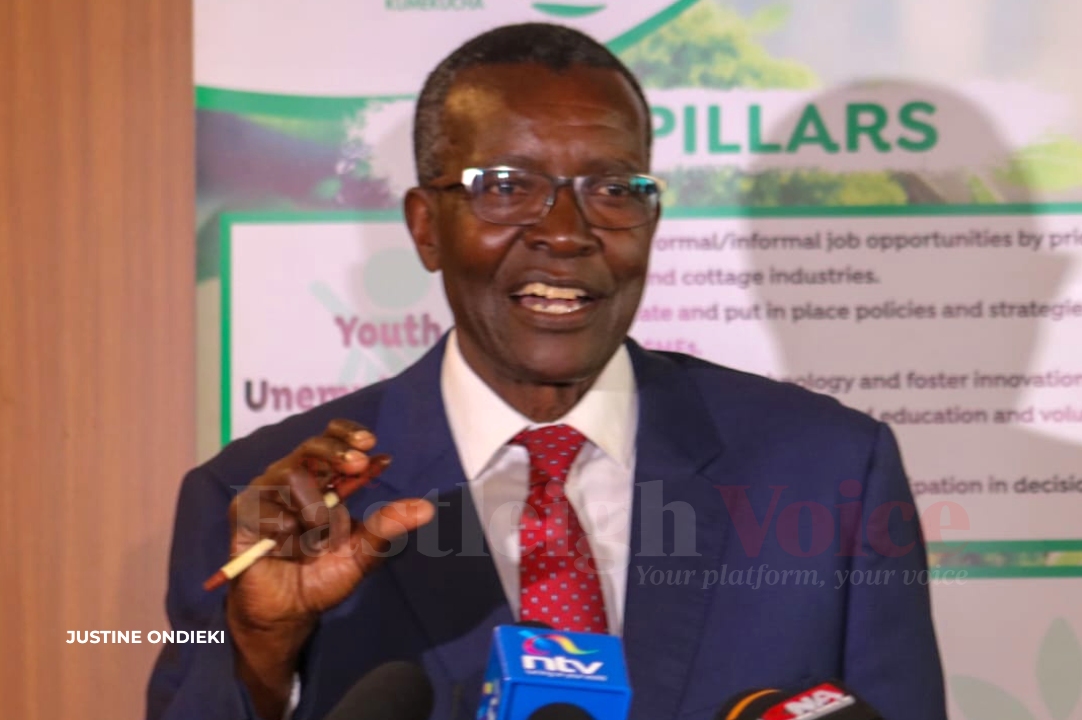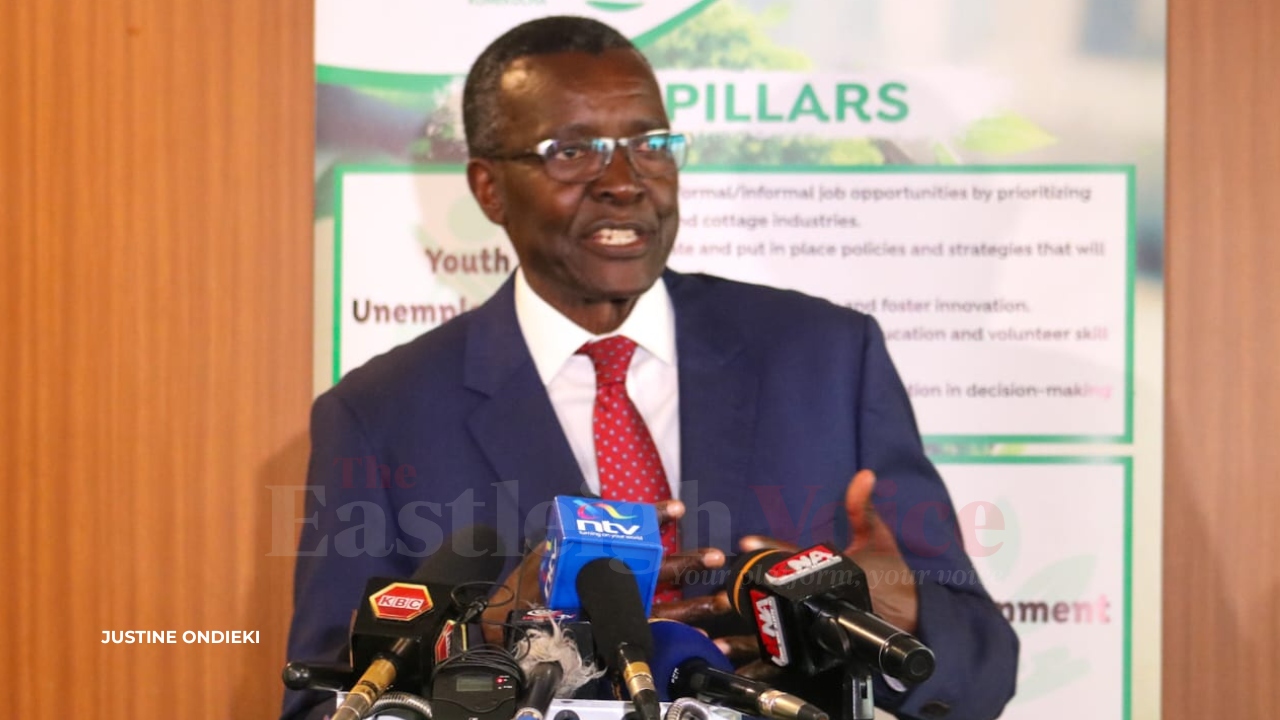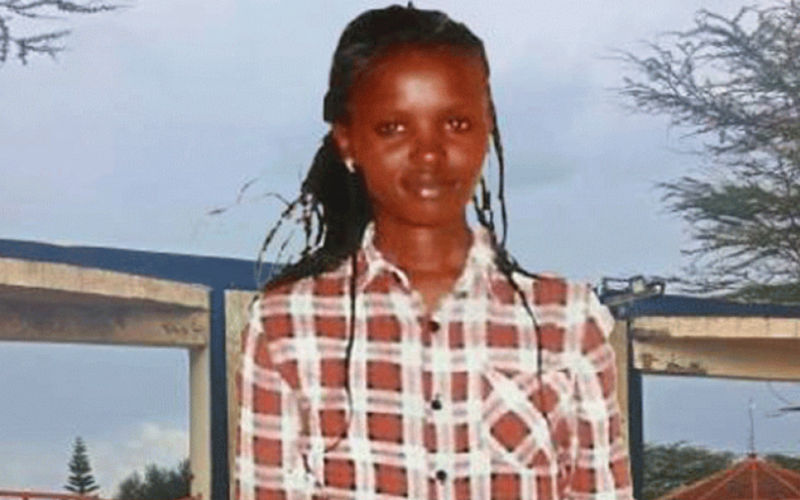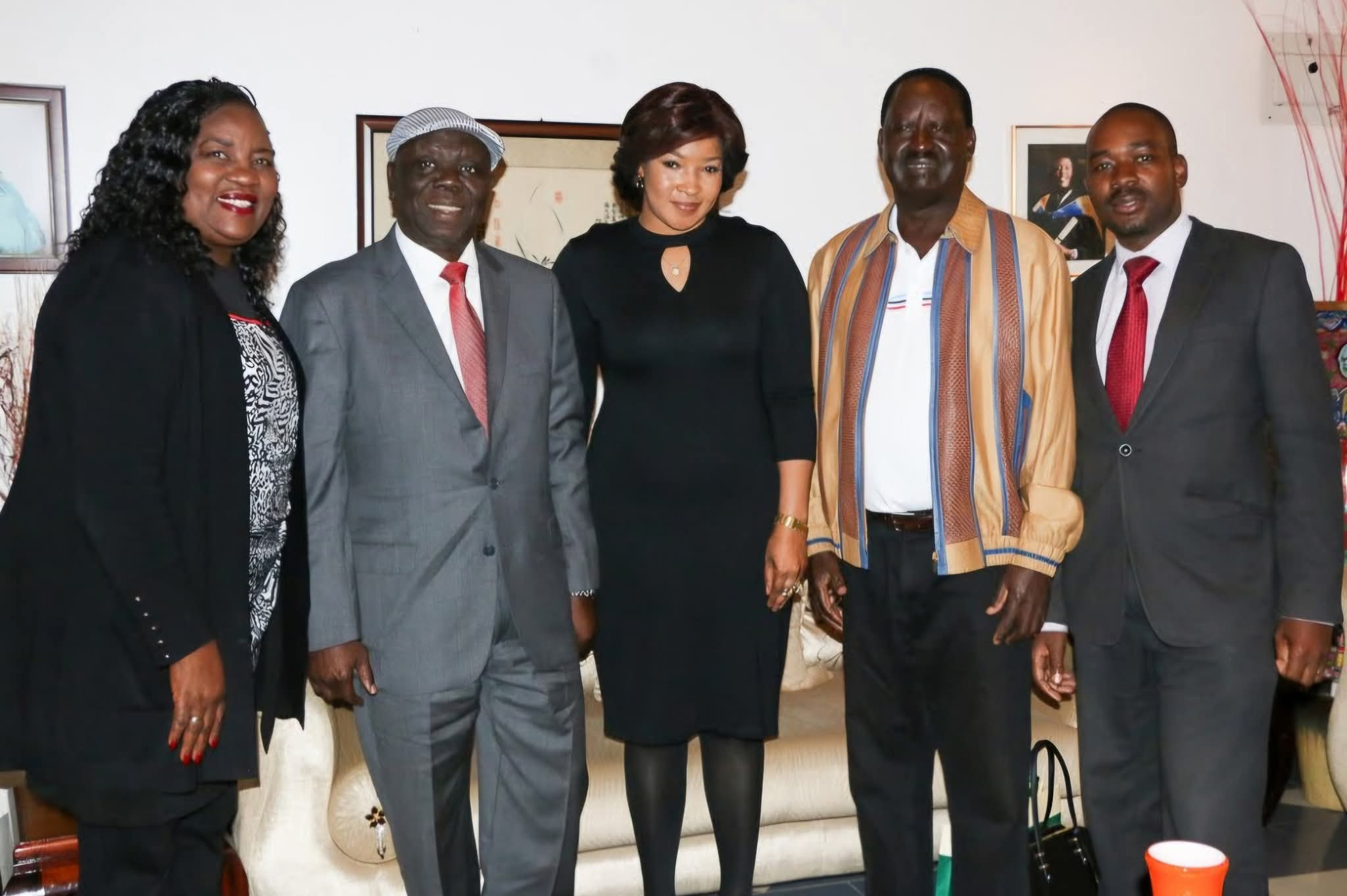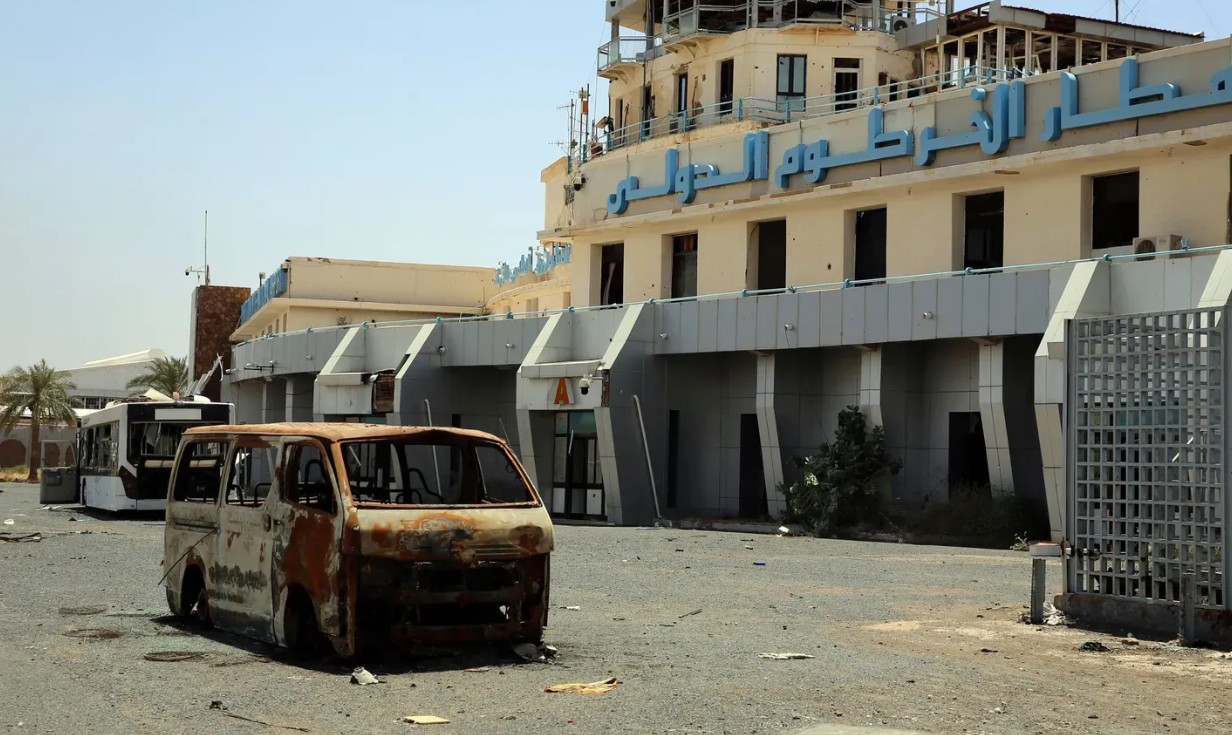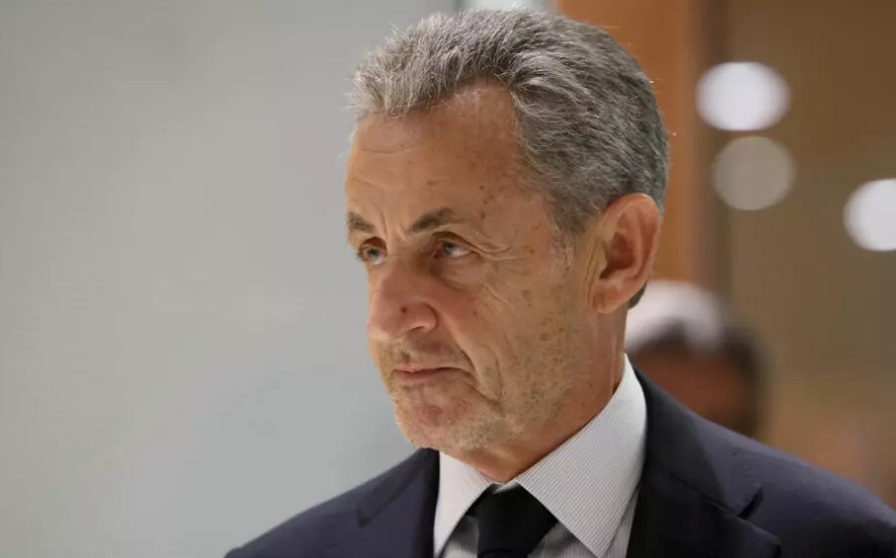What to expect from COP29 climate talks in Baku, Azerbaijan
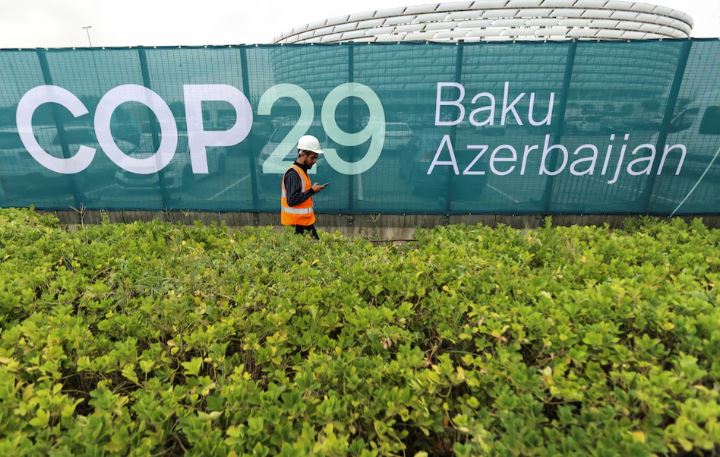
In recent years, a series of climate-fuelled disasters and extreme events, from Australia’s bushfires to Spain’s floods, have wrought havoc around the world.
The next major United Nations meeting on climate change, known as COP29, is about to get underway in Baku, Azerbaijan. These annual meetings are the key international summits as the world attempts to address the unfolding climate crisis.
The talks this year are crucial as climate change worsens. In recent years, a series of climate-fuelled disasters and extreme events, from Australia’s bushfires to Spain’s floods, have wrought havoc around the world.
More To Read
- Millions at risk as World Meteorological Organisation warns of gaps in early warnings
- Renewables overtake coal in global electricity generation
- Why are over 670 million people going hungry?
- Bold, diverse and unstoppable: Girls speak out amid a world in crisis
- Africa’s ‘great green wall’ is stalling: In Senegal very few planted areas show progress
- Africa launches first-ever climate commitment implementation index to track progress
What’s more, the continuing upward trajectory of greenhouse gas emissions suggests the window to limit warming to 1.5°C is almost closed. And the re-election of United States President Donald Trump casts a pall over global climate action.
So, let’s take a look at the agenda for this vital COP meeting – and how we can gauge its success or failure.
COP stands for Conference of the Parties and refers to the nearly 200 nations that have signed up to the UN Framework Convention on Climate Change.
Like last year’s conference in Dubai, the choice to hold this year’s meeting in Baku is controversial. Critics say Azerbaijan’s status as a “petro-state” with a questionable human rights record means it is not a suitable host.
Nevertheless, the meeting is crucial. COP29 has been dubbed the “finance COP”. The central focus is likely to be a much bigger target for climate finance – a mechanism by which wealthy countries provide funding to help poorer countries with their clean energy transition and to strengthen their climate resilience.
At the Copenhagen COP talks in 2009, developed countries committed to collectively providing US$100 billion a year for climate finance. This was seen as the big outcome of otherwise unsuccessful talks – but these targets are not being met.
The meeting also represents an opportunity to engage the private sector to play a bigger role in driving investment in the renewable energy transition.
But controversial questions remain. Who should be giving money and receiving it? And how do we ensure wealthy countries actually make good on their commitments?
The big outcome from last year’s COP was the establishment of a fund for unavoidable loss and damage experienced by vulnerable states as a result of climate effects. We’ve since seen some progress in clarifying how it will work.
But the US$700 million committed to the fund is far short of what is already required – and the finance required is certain to increase over time. One estimate suggested US$580 billion will be needed by 2030 to cover climate-induced loss and damage.
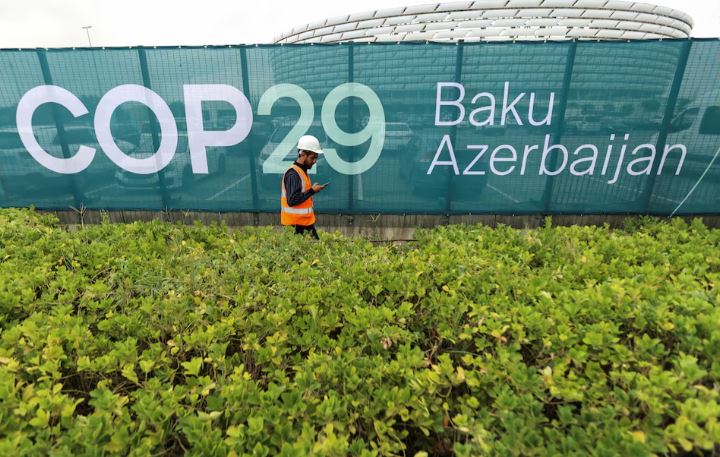 A view shows a sign of the COP29 United Nations Climate Change Conference with a backdrop of the cityscape in Baku, Azerbaijan October 31, 2024. (Photo: REUTERS/Aziz Karimov)
A view shows a sign of the COP29 United Nations Climate Change Conference with a backdrop of the cityscape in Baku, Azerbaijan October 31, 2024. (Photo: REUTERS/Aziz Karimov)
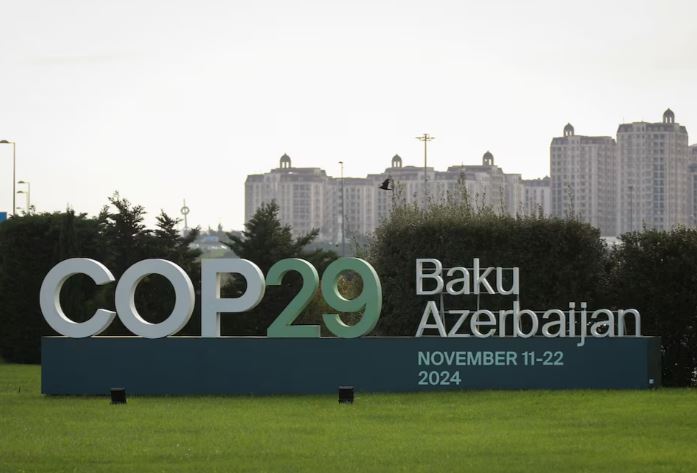
Alongside these issues, the Baku talks will hopefully see some movement on adaptation finance, enabling further funds for building climate resilience in developing countries. Contributions and commitments have been well short of the goal set in 2021.
Carbon markets
A final issue will be clarifying rules around carbon markets, especially on the controversial topic of whether nations can use carbon trading to meet their Paris Agreement emission cut targets.
Talks on the latter have been stalled for years. Some analysts see movement on carbon markets as crucial for building momentum for the transition from fossil fuels.
The Baku talks are most likely to be shadowed by the election of Republican Donald Trump as president of the United States.
Trump famously withdrew the US from the climate agreement in 2016, and has declared climate change as “one of the greatest scams of all time”.
Trump’s re-election will significantly affect US cooperation on climate change at a time when the stakes for the planet could barely be higher.
More broadly, geopolitical tensions and conflicts – from Gaza to Ukraine – also risk crowding out the international agenda and undermining the chance of cooperation between key players.
This especially applies to Russia and China, both of which are crucial to international climate efforts.
At past COPs, difficult geopolitics elsewhere haven’t been fatal for cooperation on climate policy – but it does make things harder. For this reason, Azerbaijan has called for a “truce” in global conflicts to coincide with the conference.
This COP represents the last big climate talks before national governments have to publicly state their new emission cut goals – known as “nationally determined contributions” – which are due in February 2025.
A few big players – such as Brazil, the United Kingdom, and the United Arab Emirates – have already indicated they’ll be announcing their new targets at Baku.
There will also be plenty of pressure on other nations to ramp up their targets. That’s because existing commitments put the world far off track to meeting the globally agreed target of limiting planetary warming to 1.5°C – a threshold beyond which devastating climate harms are expected.
The host nation Azerbaijan is also keen to increase transparency around reporting obligations for countries, to make it easier to track progress against emissions targets.
Australia will almost certainly not be outlining a new emissions target in Baku. It has already signalled it may announce its updated targets after the February 2025 deadline.
For Australia, the main issue at Baku may be whether we – alongside at least one Pacific country – will be announced as the hosts of COP31 in 2026. Australia is tipped to win, but Turkey is a significant competitor.
Azerbaijan sees agreement on a new collective quantified goal for climate finance as the most important outcome of the conference.
This and other finance outcomes will be important in ensuring a fair distribution of costs from the impact of climate change and the necessary energy transition.
Action on long-stalled carbon trading cooperation would also be a win and could turbocharge the global energy transition.
But real success would come in the form of significant new emissions targets and explicit endorsement of the need to move away from fossil fuels. Sadly, the latter is not prominent on the Baku agenda.
Humanity has run out of time to prevent climate change, and we are already seeing real damage. But an opportunity remains to minimise future harm. We must pursue urgent and sustained international action, regardless of who is in the White House.
Top Stories Today
